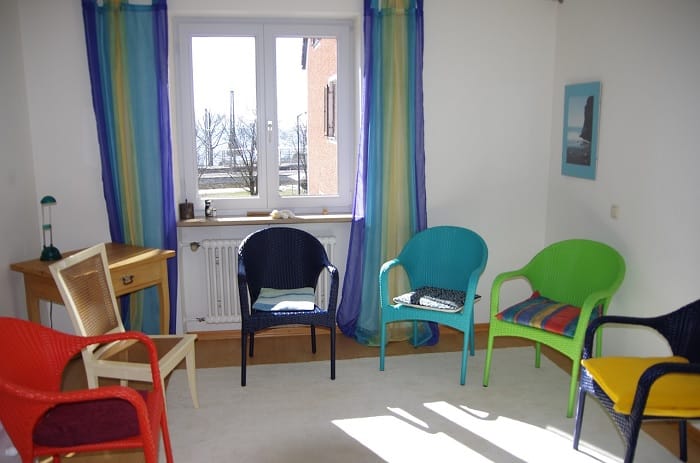Rehab 4 Addiction exists to assist you in your search for effective and proven drug and alcohol rehab in Cardiff.
At Rehab 4 Addiction, we have built a strong working relationship with more than thirty drug and alcohol addiction rehab centres and treatment providers located in Cardiff.
To discover which of these drug and alcohol rehabs in Cardiff is suited to helping you rid yourself of your drug or alcohol addiction, contact us today.
Our close-knit network of drug and alcohol rehab in Cardiff has been carefully selected according to strict quality standards.
This ensures you are only recommended to the most proven and successful treatment providers available in Cardiff today.
Many of these drug and alcohol rehabilitation clinics in Cardiff choose to specialise in the treatment of specific addictions. [1]
When you contact Rehab 4 Addiction, we ensure you are matched with a drug or alcohol rehab treatment provider that’s chosen to specialise in the treatment of your particular addiction.
Addictions are an extremely serious issue in Cardiff, with recent studies suggesting it exists in alarming rates.
Modern alcohol and drug rehabilitation centres in Cardiff offer evidence-based treatments. [2] Medicated drug detox and alcohol detox follow NICE Guidelines. [3]
Rehab 4 Addiction in Cardiff
Address: 10 Park Grove, Cardiff, Cardiff. CF10 3BNTelephone: 029 2060 7294
Business hours: Open 24 Hours/7 days a week
Services in Cardiff: Addiction Treatment, Alcohol Detoxification, Alcohol Rehabilitation, Drug Rehabilitation, Residential Rehab for Addiction, Alcohol Home Detox
Medications such as Librium and Disulfiram are used to manage the withdrawal process, as are Benzodiazepines and Buprenorphine, Acamprosate [4] and various anti-anxiety medications such as Paroxetine [5], Nefazodone [6] and their alternatives. [7]
You will be fully psychiatrically assessed upon admission to drug or alcohol rehab determine the correct dosage of medication for your detox.
These medications can provide key support, making withdrawal safer and more comfortable and being the key reason why recovering without drug or alcohol rehab or support is never advised. [8]
Public Health England [9] estimates around 28% of people undergoing addiction treatment in or out of drug or alcohol rehab in Cardiff will not complete their treatment programmes.
This is one reason why we advocate residential-based drug and alcohol rehab clinic in Cardiff, since you will remain in the drug or alcohol rehab clinic 24 hours a day for up to four weeks.
Get help today for Cardiff drug and alcohol rehabilitation or across the South Wales region in Barry, Llanishen, Caerphilly, St Fagans, Whitchurch (Cardiff), Atlantic Wharf, Leckwith, Abergavenny, Cowbridge, Newport or Swansea.
There are a wide range of drug and alcohol addictions we treat, helping to link you with the best drug and alcohol rehabilitation programme from our Cardiff clinics.
Cardiff drug rehab centres offer addiction treatment for alcohol abuse problems and binge drinking, [10] as well as commonly experienced drug addictions such as:
Prescription drug addictions are also a major issue treated at Cardiff drug and alcohol rehab centres, covering the full spectrum of substance addictions, as are behavioural addictions such as gambling and sex addiction.
Call our expert team and start your drug or alcohol recovery journey today on contact our helpline today on 0800 140 4690

Our partner drug and alcohol rehabs in Cardiff go to every length to ensure your recovery is structured, long, and lasting. [11]
The treatment on offer is suitable for all manner of addictions.
This includes drug addictions, problems with alcohol, gambling addictions and a wide variety of other addictive disorders. [12]
We also recommend drug or alcohol rehab treatment in Cardiff that is suitable for a range of ‘dual diagnosis’ conditions such as eating disorders, clinical depression, post-traumatic stress disorder and anxiety disorders.
No matter what the issue may be, you can be assured that Rehab 4 Addiction will be able to help.

Everyone dealing with substance misuse is different, and everyone has their own set of factors at play in their lives.
If you decide to approach a drug & alcohol rehabilitation centre in Cardiff regarding addictive behaviours, [13] they will want to know a little more about what has brought you to this point.
When you go into drug or alcohol rehab Cardiff you will undergo an assessment that addresses some of the key areas of your addiction,
The areas they will want to look at will include:
These areas do not form a test, they provide Cardiff drug or alcohol rehab staff with an insight into how drug and alcohol misuse has affected you.
Considering that addictions can have a significant impact on a person’s quality and length of life, [16] these effects can be extreme.
To find out if drug or alcohol rehab in Cardiff is right for you, call our team on 0800 140 4690

Prior to a loved one deciding to go to drug or alcohol rehab in Cardiff, many people have found a benefit in staging a professional intervention.
This may be necessary where your loved one is suffering from denial, [17] and thus will not agree to attend drug and alcohol rehab in Cardiff.
This involves arranging with someone like a doctor or therapist to speak professionally with the individual who is engaged in substance misuse.
The purpose is simply for the professional to inform them of how the substance abuse will negatively affect their life if they do not accept help, as well as to help guide their loved ones in successfully conveying how the addictions have impacted them. [18]
Professional interventions have been found to be significantly effective in helping people with substance use disorders think seriously about what their illness is doing, what they need to do to get well and how drug or alcohol rehab in Cardiff can help.
Call our expert team and start your drug or alcohol recovery journey today on contact our helpline today on 0800 140 4690

The prices involved in going to a drug and alcohol rehab in Cardiff will be slightly different from place to place as well as whether you wish to pay extra to have a single room.
When you get in contact with us, we can discuss with you the different prices that are available.
As an example, for someone who wanted to go to drug or alcohol rehab centres only for the 7-10 days necessary for alcohol detox, the price would be between £2,000 and £4,000.
To do this whilst securing a single room for this period would involve prices between £3,000 and £6,000.
A 28 day stay at drug or alcohol rehab in Cardiff would cost around £6,000, though if you want to have a single room during this time, then this would cost around £8,000 to £12,000.
Home-detoxes are priced at around £1,500. Undergoing detox at home has been found to be helpful by many, although it does mean that support is not always available during the process as it is at drug or alcohol rehab.
It’s also possible to access council-funded drug and alcohol rehabilitation services in Cardiff.
The advantage of this is the treatment will not cost you any money, however, the application process is notoriously long, and many people are offered outpatient treatment as a first port of call.
It’s also possible to undergo an alcohol detox at your local National Health Service (NHS) hospital in Cardiff.
However, your medical situation will need to be judged as an emergency in order to be admitted to a hospital.
This could be the case if you begin to experience severe drug and alcohol withdrawal symptoms [19] such as tumours/seizures, suffering from alcohol-related brain damage, even hallucinations and delirium tremens.
Like private alcohol and drug rehabilitation centres, statutory-funded drug or alcohol rehab services in Cardiff are subject to the same strict regulatory framework managed by the Care Quality Commission (CQC).
Below, we list a number of state-funded addiction treatment providers in the Cardiff area. These organisations are charities or otherwise non-profit organisations:
Telephone: 0300 300 7000
Address: 7 St Andrews Place, Cardiff, CF10 3BE
Telephone: 029 2074 7747
Address: Heath Park, Cardiff CF14 4XW
Telephone: 0292 022 7019
Address: 218 Cowbridge Rd E, Cardiff, CF5 1GX
Website: http://www.recoverycymru.org.uk/
As well as the above, it is also possible to access support via national charities such as Mind and Rethink Mental Illness.
It is worth remembering that, whilst the NHS can provide ample free addiction support, the high demand and high cost [20] of treatment often mean that waiting times can be dangerously long. [21]
Call our expert team and start your drug or alcohol recovery journey today on contact our helpline today on 0800 140 4690
It is also possible to pay for drug and alcohol rehab in Cardiff via a policy of health insurance.
This may be available via your contract of employment, so it is worth checking the terms and talking with your specific insurance provider.
Drug and alcohol rehabs in Cardiff accept payments from all major health insurance companies such as AXA and Bupa.
Call our expert team and start your recovery journey today on 0800 140 4690

Addiction is a chronic mental disease that can affect anyone of any age, [22] sex or background.
It is a disease that is caused by many different factors [23] but ultimately has its roots in a chemical imbalance within the brain.
The chief chemical involved in addictive patterns of behaviour is the neurotransmitter dopamine.
This chemical tells our brain that certain behaviours are worth repeating because they bring us some form of benefit.
Addictive substances like alcohol, cocaine, and heroin cause the release of huge amounts of dopamine in the brain in a way far beyond the amount that is released by natural pleasures.
If this is the case, we may wonder why not everyone becomes addicted to alcohol and cocaine etc.
It has been found that people who become addicted normally have other psychological issues present as well, such as depression or trauma.
Most people, when they drink alcohol or use addictive drugs, have other reactions in their brain that tell them that they cannot just repeat these behaviours again and again.
However, when combined with other psychological difficulties or lack of supportive social networks, addictive substances can cause the brain to work in such a way that it begins to put the substance before anything else.
Call our expert team and start your drug or alcohol recovery journey today on contact our helpline today on 0800 140 4690

How long will drug or alcohol rehab last? That can be a difficult question to answer as everyone’s drug or alcohol rehab experience is different.
Whilst the full addiction recovery service tends to take anywhere from six months to five years, [24] formal treatment will never last this long.
The minimum amount of time needed for alcohol detox is 7-10 and some people choose to go to a local drug or alcohol rehab clinics group in Cardiff only for the time necessary to carry out this detox.
This might be the case for other drug detoxes too, although for other substances the detox period may be slightly longer.
Many people choose to stay in drug or alcohol rehab for longer than this, perhaps a month or more, in order to give themselves a chance to look at all the other issues involved in their addictive substance use.
Call our expert team and start your recovery journey today – 0800 140 4690

The question of whether you will need a detox will depend first of all on what particular substance you have been using.
Some substances, such as alcohol and opioids, produce a physical dependence in the body which means that the body adapts to having those substances in its system.
The result of this is that when you try to stop using the substance, your body thinks that something is missing and withdrawal symptoms are experienced.
Rehab can help mitigate the resulting symptoms.
With certain drug and alcohol dependence, these withdrawal symptoms can even be lethally dangerous, as you can experience seizures.
Thus, when you attend a drug and alcohol rehabilitation centre in Cardiff, you will likely need to undergo a detox as soon as you are admitted.
With these physically addictive substances, medical detoxes are normally insisted upon, in order that a person can withdraw from their use safely and more comfortably.
Medical detox involves the administration of medication to help the body cope during drug and alcohol withdrawal treatment.
Call our expert team and start your drug or alcohol recovery journey today on contact our helpline today on 0800 140 4690

When regularly consuming [25] large quantities of alcohol, individuals risk significant organ damage [26] which can worsen during withdrawal, including:
Rehab can keep you safe with 24/7 medical assistance while you detox.
Alcohol withdrawal syndrome is normally assisted with a medication called Librium which is administered over the course of 7-10 days.
A similar length of detox might be required for substances such as benzodiazepines, whereas withdrawal from heroin addiction might require slightly longer.
As dangerous as these symptoms are, with the right rehab support they can be limited and even reversed entirely. [35]
To discuss your own specific requirements, please do get in contact with us here at Rehab 4 Addiction.

Rather than going to an inpatient drug and alcohol rehab in Cardiff for a detox, some people choose to have a home detoxification.
Home detox is permitted after a psychiatric assessment by a psychiatrist and only if the individual is drinking less than 30 units of alcohol a day. [36]
If the assessor is happy that the detox is safe then the medication (often Librium) is posted to the client each day and continued monitoring is carried out via a daily phone call.
This process is cheaper than going to a residential alcohol and drug rehab centre in Cardiff, but it is not as safe as trained supervision is not always at hand.
A home detoxification must also not be confused with a self-detox, which refers to the attempt by an individual to detox from a substance without medical help or drug and alcohol rehab support.
To learn more about home detoxification and live-in drug and alcohol rehab in Cardiff, call our support team on 0800 140 4690

When you decide to attend a drug and alcohol rehab in Cardiff, you will be helped to stop drinking or taking drugs permanently. [37]
This is because abstinence is the goal of drug and alcohol rehab, rather than simple harm reduction. [38]
The aim of any drug and alcohol addiction rehabilitation clinic in Cardiff will not be to help you drink or use drugs to a lesser extent.
Experience has shown that for someone with a substance abuse disorder to be able to revert to using alcohol or drugs in a controlled way is almost unheard of, [39] at least not permanently.
Trying to do this is also very dangerous as addictive use can very quickly return.

Science tells us that addictions are a chronic mental health disease, and therefore treating this illness requires time.
Treating a substance use disorder at drug and alcohol rehab entails trying to build new pathways in the brain that are based on healthy patterns of behaviour instead of addictive behaviour.
Alcohol and drug addiction treatment in Cardiff is built around the aim of assisting in maintaining [40] the decision to change.
In our old environments, it is just too easy to feel that change is impossible and to return to negative habits.
Thus, the main benefit of drug and alcohol rehab in Cardiff is developing coping mechanisms so that you can sustain your recovery for the long term.

Different drug and alcohol rehabs in Cardiff will have different facilities and offer different types of therapy.
Trying to make a decision about which addiction rehabilitation centre in Cardiff to attend can seem overwhelming.
By contacting us we will help you explore what different drug and alcohol rehabs offer, explain the various treatment modalities available in your local area and which ones would be most suitable for you or your loved one.
We will help you find:
For more help in choosing a suitable drug and alcohol rehab in Cardiff, call our team on 0800 140 4690

Naltrexone [41] can help you to reduce cravings [42] by blocking the part of your brain that experiences pleasure from alcohol.
In Dr Gillian W Shorter’s study [43] on combined pharmacotherapies and behavioural interventions [44] and their role in treating people who are dependent on alcohol, [45] patients who were given the medication naltrexone had a more successful outcome than those who didn’t take the medication.
Even after you become abstinent, you will still be in recovery and need further drug and alcohol rehab treatment to keep you on this path.
Dennis Donovan also studied alcohol treatment outcomes and discovered that aftercare after drug and alcohol rehab made people three times more likely to remain in recovery. [46]

Drug and alcohol rehab in Cardiff are able to offer a range of therapeutic tools to help clients deal with drug and alcohol dependence as well as a host of underlying psychological and emotional struggles.
Cognitive Behavioural Therapy (CBT) is among the most frequently used tools in treating substance use disorders as well as many other mental health issues. [47]
This form of therapy is carried out both on an individual and group level to help challenge negative patterns of thought and behaviour and establish healthier ways of responding to challenges.
CBT has an extremely high success rate in drug and alcohol rehab [48] with very low chances of relapse [49], although some individuals will find it less effective [50] due to pre-existing conditions.
Dialectical Behavioural Therapy (DBT) is an adapted form of CBT that focuses on negative feelings over negative thoughts.
Motivational Interviewing (MI) is a therapeutic method that helps people who are struggling with substance misuse to progress to a point where they feel the need and the desire to make changes in their behaviours. [51]
Drug and alcohol rehab can help you build the belief and self-confidence [52] needed to properly overcome drug or alcohol dependence.
Family therapy recognises that addiction is often a family disease, and family member participation in the recovery process is known to help overcome barriers to recovery.
Codependency can also be treated – this is when your relationships support your alcohol or substance misuse.
Some alcohol and drug rehab centres in Cardiff base their recovery programmes on the Twelve Step method of substance abuse recovery.
The Twelve Steps is perhaps most commonly associated with Alcoholics Anonymous in Cardiff but has also been adopted by many other groups that focus on other substances, such as Narcotics Anonymous in Cardiff and Cocaine Anonymous.
12-step treatment programmes are also available for the loved ones of those affected by addiction via Al-Anon.
The 12-step treatment programme has proven helpful and effective for many thousands of drug and alcohol misuse sufferers by offering a method of dealing with the challenges to addiction recovery that can come up, as well as a network of support.
Drug and alcohol rehab in Cardiff also offers a range of holistic therapies.
These can include:
Holistic therapies are particularly good at helping you cope with anxiety and help you relax and overcome otherwise negative emotions that have the potential to fuel relapse.
If you would like to know more about the therapies available at a particular drug and alcohol rehab in Cardiff, please just get in contact with us at Rehab 4 Addiction.
Call our expert team and start your addiction recovery journey at rehab. Contact our helpline today on 0800 140 4690

It is uncommon to find people who are dealing with substance use disorders who do not also have other mental health issues such as depression or anxiety.
Part of the process of drug and alcohol rehab in Cardiff is beginning to deal with these other issues too in order that the client is able to leave drug addiction treatment in as strong a position as possible.
Co-occurring mental health issues [53] are also known as dual-diagnosis.
Common co-occurring mental health issues at drug and alcohol rehab include:
It’s possible you are self-medicating with alcohol and drugs as a way of coping with an underlying mental health disorder.
Drug and alcohol rehab in Cardiff helps you address underlying mental health conditions in ways that do not involve substance misuse.
Call our expert team and start your addiction recovery journey at rehab. Contact our helpline today on 0800 140 4690

Intrinsic to the drug and alcohol rehab process is looking at possible challenges to recovery in order to help plan how to avoid relapse. [56]
This is always a key concern as, sadly, addictions cannot be fully cured. [57]
Everyone will have their own particular weak spots, so relapse prevention at drug and alcohol rehab is ultimately a very individual process.
However, there are also areas such as dealing with emotions and avoiding key triggers [58] that everyone in early addiction recovery has to face.
Immediately following drug and alcohol rehab in Cardiff will be one of the most dangerous times [59] for an individual facing relapse, so having a clear and astute relapse prevention plan is an essential part of continued sobriety.
Call our expert team and start your addiction recovery journey at drug and alcohol rehab today on 0800 140 4690

If you are not ready or do not wish to go to drug and alcohol rehab in Cardiff, there are other treatment programmes and methods of addiction recovery that can be tried.
12 Step Recovery groups, such as Alcoholics Anonymous meetings and Narcotics Anonymous meetings are free, available in Cardiff and have proven effective for vast numbers of substance use disorder sufferers.
SMART Recovery is often seen as an alternative to drug and alcohol rehab and 12 step programmes, and offers support groups and addiction recovery tools for alcohol and drug addiction sufferers in Cardiff.
SMART Recovery is not as old as Alcoholics Anonymous but is growing in popularity.
It is also worthwhile making contact with your own local authorities to ask what substance abuse disorder treatments [60] are available from them, and via a private drug or alcohol rehab centre in Cardiff within the area.

When you enter a private drug and alcohol rehab clinic in Cardiff, you will begin your treatment programme by going through a medically-assisted detox programme.
You may be prescribed medication to help diminish any withdrawal symptoms you may begin to experience when drugs or alcohol are taken away.
Detox treatment programmes generally require around 5-7 days to complete at drug and alcohol rehab.
Throughout this period, you will be carefully monitored by drug and alcohol rehab staff to ensure your withdrawal symptoms are not left untreated.
Whilst detox is important, by far the most vital ingredient of your alcohol and drug addiction treatment is addiction rehabilitation.
Drug and alcohol rehab services in Cardiff involve a plethora of counselling and therapy techniques to help cement your addiction recovery.
Without therapy and counselling with trained addiction counsellors, your sobriety is likely to be short-lived. [61]
Whilst detox attempts to tackle the physical aspect of addiction, addiction treatment services instead focus on treating the psychological aspect of alcohol or drug addictions.
During therapy sessions at drug and alcohol rehab in Cardiff, you will discover the specific emotional causes of your addiction. [62]
You will then be given the tools and techniques to allow you to overcome these causes in ways that do not involve drug and alcohol consumption.
Call our expert team and start your recovery journey today – 0800 140 4690

To help you get the best of both worlds, the treatment [63] we recommend in Cardiff combines both inpatient drug and alcohol rehab and outpatient treatment.
Many people think that recovery is a matter of outpatient vs inpatient addiction treatment, but this doesn’t have to be so.
The best addiction treatment will always come from a multidisciplinary approach drug and alcohol rehab clinic, as this will be able to address every last aspect of addiction faced by the addiction sufferer.
Outpatient treatment is provided by way of ‘aftercare sessions’. This takes place at a residential treatment centre.
This allows you to return to the drug and alcohol rehab centre for weekly or bi-weekly aftercare sessions.
These sessions typically take place over the weekend.
This ensures aftercare sessions after drug and alcohol rehab do not conflict with other commitments such as going to work.
You may also be signposted to your local Alcoholics Anonymous group [64] taking place in Cardiff and the surrounding areas, or meetings for Narcotics Anonymous, Cocaine Anonymous, SMART Recovery or others.
Aftercare also involves support for post-acute withdrawal syndrome which may occur following the discharge of your drug and alcohol rehab treatment in Cardiff.
Call our expert team and start your addiction recovery journey at rehab. Contact our helpline today on 0800 140 4690

Getting help to beat your addiction is a big decision, but it is the first step on the path towards long-term addiction recovery.
If you cannot commit to residential drug and alcohol rehabilitation centre in Cardiff, we may also recommend you to one of Cardiff’s excellent outpatient facilities.
We also offer a number of home detox treatment options in and around Cardiff.
To take advantage of these incredible options for drug and alcohol rehab in Cardiff, contact us today on 0800 140 4690.
Rehab 4 Addiction officers a range of alcohol and drug addiction treatments in Cardiff and across Wales, including Monmouthshire, Glamorgan, Cardiff, Swansea, Wrexham, Aberystwyth, Rhyl, Powys, Pembrokeshire, North Wales, Newport, Llandudno, Gwynedd, Conway, Colwyn Bay, Bangor, and Anglesey.
This article was written by Boris Mackey. You can connect with Boris online at LinkedIn or X.com.
[1] https://nida.nih.gov/publications/drugs-brains-behavior-science-addiction/drug-misuse-addiction
[3] https://pathways.nice.org.uk/pathways/alcohol-use-disorders/acute-alcohol-withdrawal
[4] https://effectivehealthcare.ahrq.gov/products/alcohol-misuse-drug-therapy/consumer
[5] https://www.ncbi.nlm.nih.gov/pmc/articles/PMC5614930/
[6] https://agapetc.com/what-is-the-best-antidepressant-for-an-alcoholic/
[7] https://www.rehab4addiction.co.uk/addiction-treatment/naltrexone-implant
[10]https://www.cdc.gov/alcohol/onlinemedia/infographics/excessive-alcohol-use.html
[11] https://www.ncbi.nlm.nih.gov/pmc/articles/PMC4553654/
[12] https://www.ncbi.nlm.nih.gov/pmc/articles/PMC5328289/
[13] https://www.ncbi.nlm.nih.gov/pmc/articles/PMC3654310/
[14] https://pubs.niaaa.nih.gov/publications/aa63/aa63.htm
[15] https://www.recoveryanswers.org/research-post/recovery-attempts-review/
[16] https://www.ncbi.nlm.nih.gov/pmc/articles/PMC4402015/
[17] https://www.mountsinai.org/health-library/selfcare-instructions/deciding-to-quit-drinking-alcohol
[18]https://www.ahrq.gov/prevention/guidelines/tobacco/5steps.html
[19] Removed
[22] https://www.niaaa.nih.gov/alcohols-effects-health/alcohol-topics/older-adults
[23] https://nida.nih.gov/publications/drugfacts/understanding-drug-use-addiction
[24] https://www.racnj.com/the-five-stages-of-addiction-recovery/
[25]https://www.edu.gov.mb.ca/k12/cur/physhlth/frame_found_gr11/rm/module_e_lesson_2.pdf
[26] https://www.niaaa.nih.gov/alcohols-effects-health/alcohols-effects-body
[27] https://www.cdc.gov/alcohol/fact-sheets/womens-health.htm
[29] https://www.cdc.gov/alcohol/fact-sheets/alcohol-use.htm
[30] https://www.niaaa.nih.gov/publications/alcohol-and-brain-overview
[32] https://pubs.niaaa.nih.gov/publications/aa22.htm
[33] https://www.cdc.gov/alcohol/fact-sheets/alcohol-use.htm
[34] https://premierneurologycenter.com/blog/neurologic-diseases-associated-with-alcohol-consumption/
[36] https://www.nhs.uk/live-well/alcohol-advice/the-risks-of-drinking-too-much/
[39] https://www.mayoclinic.org/diseases-conditions/alcohol-use-disorder/symptoms-causes/syc-20369243
[40] https://www.ncbi.nlm.nih.gov/pmc/articles/PMC4553654/
[41] https://www.aafp.org/pubs/afp/issues/2016/0315/p457.html
[42] https://www.painscale.com/article/the-4-c-s-of-addiction
[43] https://jamanetwork.com/journals/jama/article-abstract/202789
[44] https://www.ncbi.nlm.nih.gov/books/NBK385382/
[45] https://www.mayoclinic.org/diseases-conditions/alcohol-use-disorder/symptoms-causes/syc-20369243
[46] https://psycnet.apa.org/record/1984-07742-001
[47] https://web.archive.org/web/20230315051842/https://pubs.niaaa.nih.gov/publications/arh22-1/61-66.pdf
[48] https://gpsych.bmj.com/content/32/5/e100087
[49] https://pubmed.ncbi.nlm.nih.gov/32954958/
[50] https://www.ncbi.nlm.nih.gov/pmc/articles/PMC7001356/
[51] https://www.ncbi.nlm.nih.gov/pmc/articles/PMC6760428/
[53] https://pubs.niaaa.nih.gov/publications/aa63/aa63.htm
[54] https://iv.iiarjournals.org/content/24/5/761
[55] https://www.ncbi.nlm.nih.gov/pmc/articles/PMC6241194/
[56] https://www.tpoftampa.com/how-common-is-relapse-after-rehab-and-how-can-it-be-avoided/
[57] https://nida.nih.gov/publications/drugs-brains-behavior-science-addiction/treatment-recovery
[59] https://rivierarecovery.com/the-wall-stage-of-recovery/
[61] https://www.newdirectionsforwomen.org/what-percentage-of-alcoholics-recover/
 Substance addiction, also referred to as Substance Use Disorder (SUD), is a chronic and relapsing brain disease that affects both physical and psychological functioning. It develops when repeated exposure to drugs or alcohol alters brain chemistry, particularly the reward and motivation systems, leading to compulsive substance use despite harmful c .... Read More
Substance addiction, also referred to as Substance Use Disorder (SUD), is a chronic and relapsing brain disease that affects both physical and psychological functioning. It develops when repeated exposure to drugs or alcohol alters brain chemistry, particularly the reward and motivation systems, leading to compulsive substance use despite harmful c .... Read More
 Addiction recovery is a deeply personal and individual journey. The decision to seek help for your drug or alcohol addiction and rebuild your life generally happens quietly, sometimes after years of struggle. But while recovery starts at an individual level, it’s rarely successful in isolation. Behind most long-term recovery stories is a time whe .... Read More
Addiction recovery is a deeply personal and individual journey. The decision to seek help for your drug or alcohol addiction and rebuild your life generally happens quietly, sometimes after years of struggle. But while recovery starts at an individual level, it’s rarely successful in isolation. Behind most long-term recovery stories is a time whe .... Read More